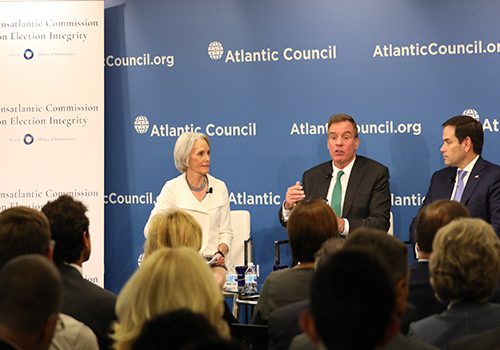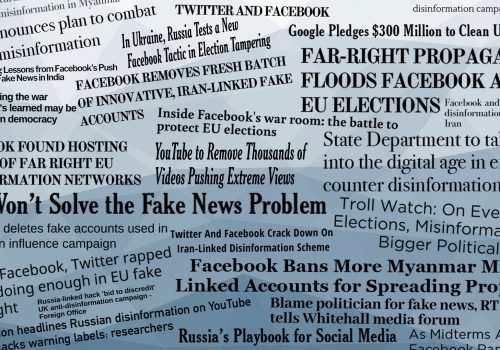For years, Russia under Vladimir Putin has engaged in activities aimed to destabilize democracy in Europe and the United States. The Kremlin employs an asymmetric arsenal, including cyber-attacks, online manipulation, and disinformation campaigns to influence the outcome of democratic elections. The threat posed by Kremlin meddling requires Western governments, civil society, and the private sector to take steps to build resilience and resistance against disinformation campaigns and interference.
The event begins with a fireside chat between Senator Mark Warner (D-VA) and Senator Marco Rubio (R-FL). This is followed by a strategic panel discussion focused on the Kremlin’s spectrum of asymmetric tools and capabilities to interfere in elections, as well as its tactics of disinformation.



